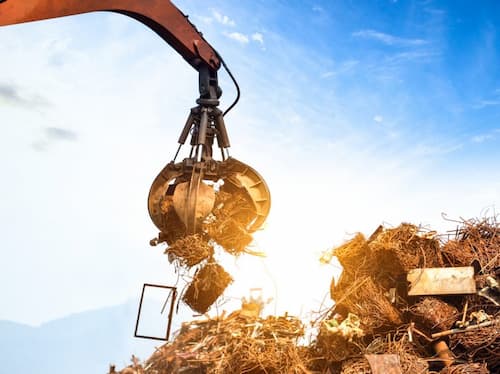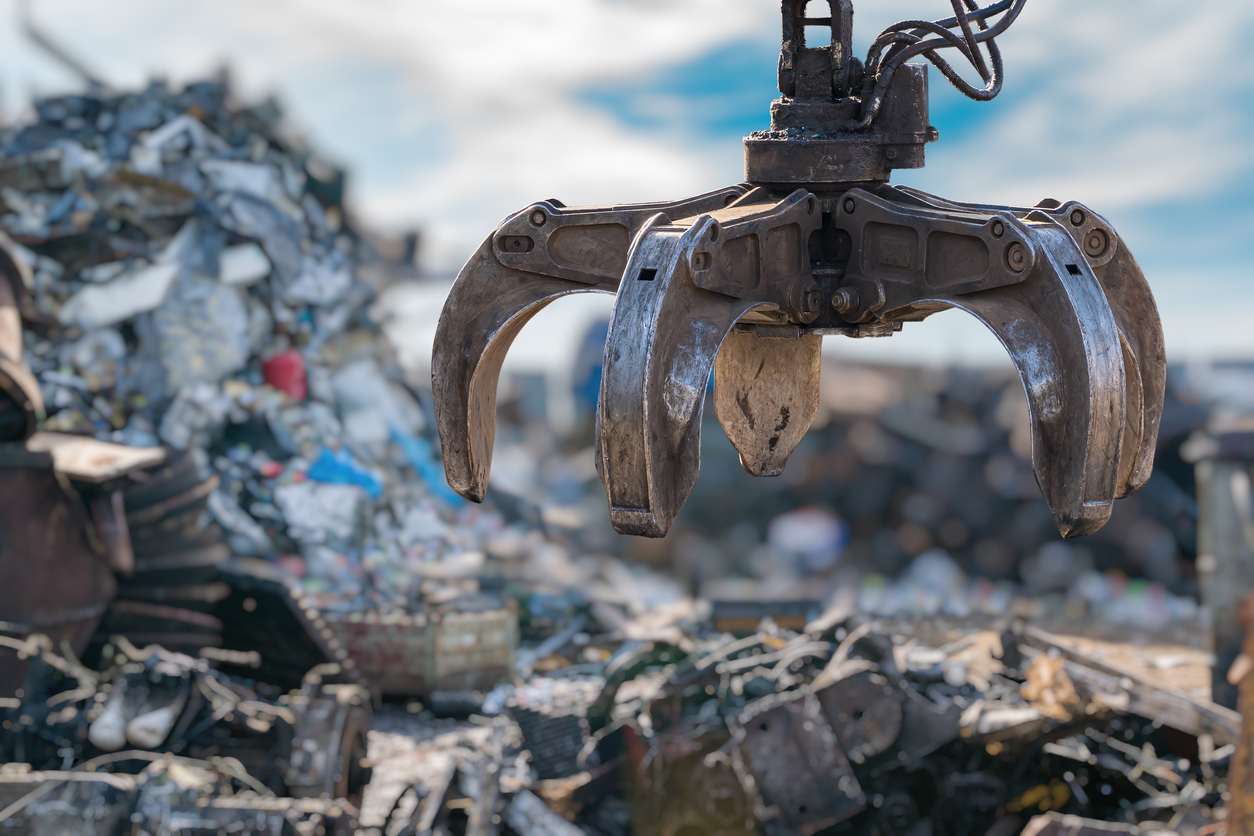We use lots of items that contain metals, from our smartphones and computers to our furniture and appliances. Such a heavy dependence on metal increases the importance of its availability.
So, continuing to feed a high demand for metals is a challenge and can lead to the depletion of natural resources. Recycling, however, is an excellent way to preserve natural resources – the more that people and businesses recycle, the better we can protect the planet and preserve raw materials.
Metals as Non-Renewable Resources
Non-renewable resources are natural materials that can’t be replenished at the same rate they’re consumed. If we continue to use certain materials, including metals, without finding a way to replenish them, then those materials will run out.
Metals are considered non-renewable due to their nature. Most of them were created under extreme heat and pressure during the Earth’s lifetime, so it would take a long time for the existing resources to be restored naturally.
While the planet’s natural metal resources are vast, they’re not infinite, and some metals will disappear at a faster rate than others if we don’t do something about it. And, despite the Earth containing huge amounts of metals, we’re unable to access most of them because they’re so deep underground.
And it’s not just metals that are in danger of disappearing. Currently, the estimate is that we’ll run out of fossil fuels by 2050. These fossil fuels are used for many things, including the creation of plastics, which means plastic recycling is vital as well – not to mention how keeping plastics away from landfills and oceans can help protect the planet and its wildlife.
Why Recycling is Crucial
Metals are highly recyclable, which is great news considering recycling eliminates – or, at least, reduces – the need for raw material. Materials like aluminium and steel can be recycled endlessly without losing their properties or quality. Scrapping metal by selling it to authorised facilities like Morecambe Metals can help preserve the natural metal resources we have at the moment.
We process the materials and sell them back to industries that need them, meaning we’re doing our part to help the planet.
It’s also important to note that mining raw materials consumes a lot of energy, generates a lot of waste and uses a lot of water. Things like fracking, quarrying, logging and mining are harmful to the environment because they pollute the air and water sources and destroy habitats. There’s also the processing and transporting of raw materials to consider, both of which use a lot of energy too.
Recycling, on the other hand, can save energy and even reduce greenhouse gas emissions.
Scrap Metal Recycling Facts
So, let’s a look at some of the most popular materials and the resources we can save by recycling them.
Steel
An alloy of carbon and iron, steel is one of the most used materials in modern society. For every tonne of steel recycled, it’s possible to save:
- 1.5 tonnes of iron ore
- 70% of the energy
- 40% of the water
- 75% of CO2 emissions
Aluminium
Aluminium is another popular material used in a range of industries, from aerospace to the food and drinks sector.
- Around 9.5 billion aluminium drink cans are produced every year in the UK, and around 75% of those are recycled.
- If a drinks can is recycled, it can be back on the supermarket shelf in just two months.
- To produce one aluminium can from scratch, it takes the same amount of energy necessary to recycle 20, another reason why recycling them is so important.
Lead
This substance is more commonly used in batteries, both in the small AA/AAA ones and in the larger car batteries. Other facts about lead include:
- In the UK, 40% of lead is recycled from sources like batteries
- Up to 99% of lead-acid car batteries are recyclable
- Using secondary lead can reduce CO2 emissions by 99%
Copper
Copper is another metal that doesn’t lose quality when it’s recycled, allowing it to be used over and over again.
- Nearly 40% of the global demand for copper is met through recycling
- We can reduce CO2 emissions by 65% by recycling this metal instead of mining it
- 60% of all copper produced since the 1900s is still in circulation
Scrap metal recycling reduces the amount of waste sent to landfill. It takes up valuable space, leaches into the soil and water, worsens global warming, and more. Substances like lead, for instance, are also highly toxic, so they can do a lot of damage to the environment.
At Morecambe Metals, we understand how precious this resource is. Metal is finite so recycling is the only way to ensure we don’t run out of it.
Get in touch with us today if you’d like to learn more about our scrap metal recycling process and how we can help your business or industrial facility.




